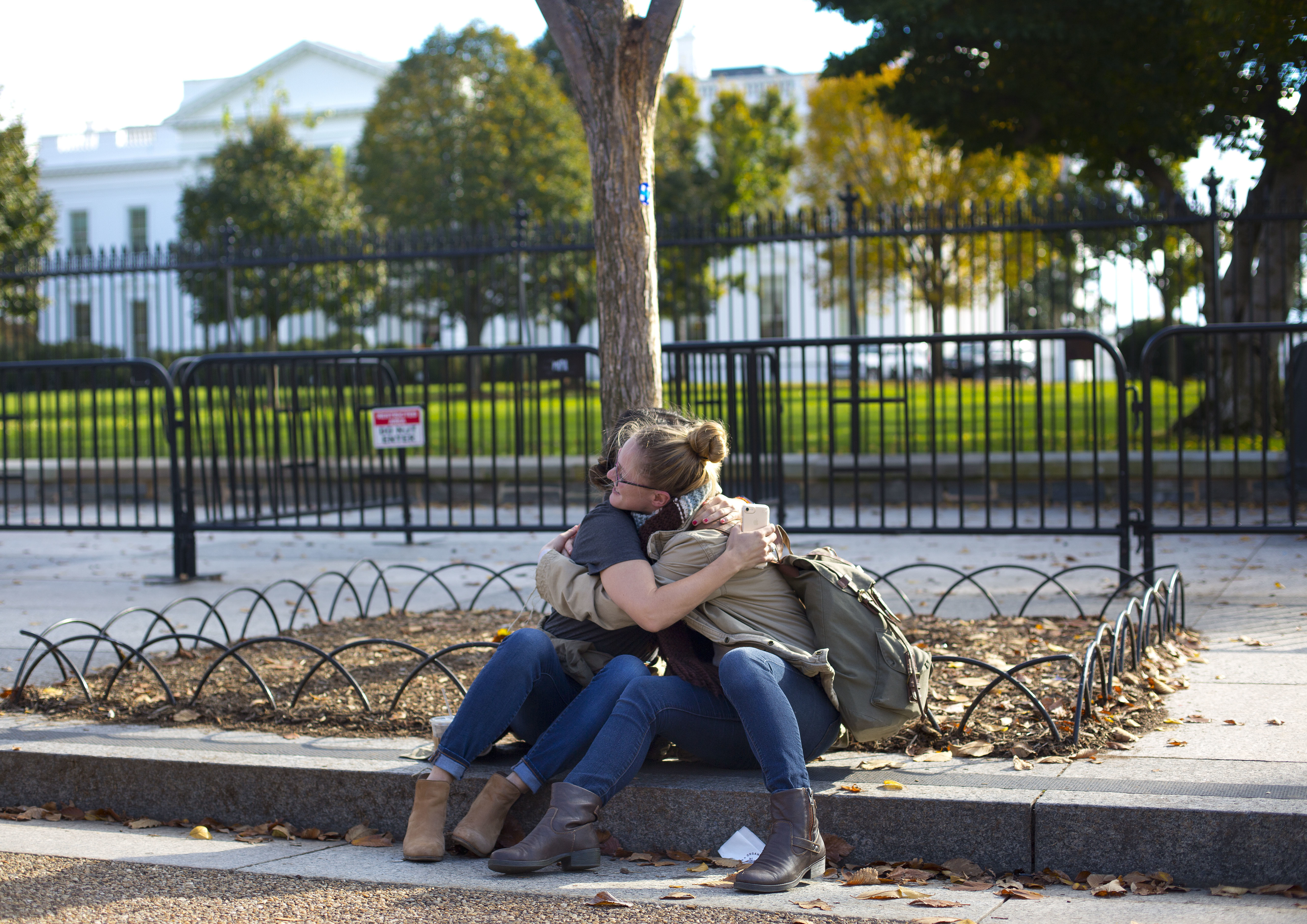How to give thanks in the age of Trump
Reminder: Abraham Lincoln declared Thanksgiving a holiday in the middle of the Civil War


A free daily email with the biggest news stories of the day – and the best features from TheWeek.com
You are now subscribed
Your newsletter sign-up was successful
One hundred and fifty three years ago, a commander-in-chief engaged in the bloodiest conflict this nation has ever seen called upon a shattered and grieving people to give thanks.
There's a myth that "the first Thanksgiving" involved starving Europeans and perhaps fatalistically kind Native Americans, but showing gratitude for good fortune was actually part and parcel of early American culture and only loosely based in post-harvest religious traditions. The Continental Congress declared a day of public thanksgiving every year between 1777 and 1784, often in the dead of winter. George Washington declared a day of thanks in 1789 so Americans might show gratitude for "[the] opportunity peaceably to establish a form of government for their safety and happiness." And Abraham Lincoln declared two earlier days of thanks before his 1863 proclamation that the last Thursday of November would be "a day of Thanksgiving and Praise," effectively launching our now-annual national holiday (formalized as the fourth Thursday in November by Franklin Delano Roosevelt in 1941).
Whatever these men may have envisioned as "a day of Thanksgiving," however, it probably didn't look much like America circa 2016. They may have been able to imagine the enormity of our holiday meals, but anything as far-fetched as women CEOs or a black man in the White House were surely absent from their minds — as were, I would wager, millions of atheists who don't praise any god, yet manage to give thanks just the same.
The Week
Escape your echo chamber. Get the facts behind the news, plus analysis from multiple perspectives.

Sign up for The Week's Free Newsletters
From our morning news briefing to a weekly Good News Newsletter, get the best of The Week delivered directly to your inbox.
From our morning news briefing to a weekly Good News Newsletter, get the best of The Week delivered directly to your inbox.
What our flawed visionaries could see, however, was hardship — fear, loss, and bone-crushing grief. None of the presidents mentioned above served their country in peace and prosperity; Pearl Harbor was still 11 days away when Roosevelt chimed in on the holiday, but war was all around, and one would be hard-pressed to call the Depression a walk in the park. Yet each man called on Americans to name and claim their blessings, even in the face of horror.
They didn't rest there, though — giving thanks was posited as a prelude to reaching out to a world in need.
"I recommend to [my fellow citizens] that while offering up the ascriptions justly due to Him," reads Lincoln's proclamation (composed by Secretary of State William Seward), "they do also… commend to His tender care all those who have become widows, orphans, mourners, or sufferers in [our] lamentable civil strife… and fervently implore the interposition of the Almighty Hand to heal the wounds of the nation." In his second inaugural address, Lincoln made clear that prayer wasn't enough — human hands were required to "finish the work we are in, to bind up the nation's wounds."
Though not a civil war, our recent election results have plunged America into dark times, made darker still by the fact that we can't yet know the measure of the malice we face in President-elect Donald Trump. Muslim-Americans have heard the notion of their internment casually raised; African-Americans have seen a man repeatedly accused of racism appointed attorney general; American Jews have watched a man repeatedly accused of anti-Semitism named to a top job in the White House; women of all stripes are grappling with a president-elect who has boasted of sexual assault, and a vice president-elect so antagonistic to our bodily autonomy that even pro-life Republicans have opposed him.
A free daily email with the biggest news stories of the day – and the best features from TheWeek.com
I will confess that I have moments and indeed whole hours in which that darkness sits like a physical weight on my chest, fear and grief making it hard to breathe. Gratitude feels like a luxury.
One of my very few heroes, however, is our 16th president — a man who was flawed and a product of his times, but also wise and brave beyond measure. Over the distance of 153 years, Lincoln's message on what was to be our first annual Thanksgiving provides a template.
Be thankful for what is good and right — a favorite food, a piece of musical genius, love in any form, the ongoing existence of the ACLU. And then — no, not then, but in tandem — reach beyond that joy and find the sufferers; seek to bind wounds.
This may mean writing letters or volunteering at a food bank; standing up to hate speech or educating ourselves about oppression; marching in the nation's capital or donating to organizations that combat hate — each of us has different skills and constraints.
But eschewing joy serves no one; indeed, the giving of thanks is bound up in service to others. In a conference call with Democrats last week, the current president said something that, perhaps unconsciously, echoed Lincoln: "You're allowed to mope for a week and a half," Obama said, "maybe two…. But after that, we got to brush ourselves off and get back to work." The president's time-frame appears to end at the holiday weekend — make it through Thanksgiving, Obama seemed to say, and then find the sufferers.
For many of us, it may not be easy to give thanks at the moment, but it is necessary — for ourselves, for those we love, and for the country which is already in such great need of our service.
Emily L. Hauser is a long-time commentary writer. Her work has appeared in a variety of outlets, including The Daily Beast, Haaretz, The Forward, Chicago Tribune, and The Dallas Morning News, where she has looked at a wide range of topics, from helmet laws to forgetfulness to the Israeli-Palestinian conflict.
